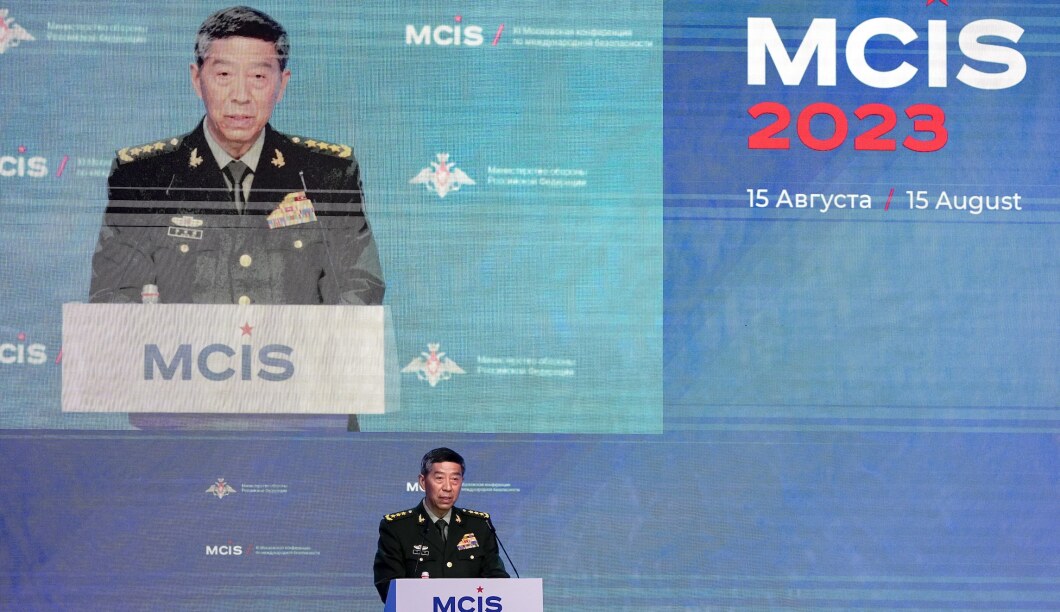
Chinese General Secretary Xi Jinping’s regime has launched an anti-corruption initiative focused on the Chinese People’s Liberation Army, stoking speculation about internal regime tensions amid the ouster of multiple high-level officials.
“One of the reasons he’s been trying to clean up the military is to ensure that it will be obedient to him and to his leadership,” the Heritage Foundation’s Michael Cunningham, a senior research fellow at the conservative think-tank’s Asian Studies Center, told the Washington Examiner. “But one of the other reasons is … corruption is not good for when you’re trying to have a combat-ready military.”
SCHUMER AI FORUM DRAWS IRE OF BIG TECH FOES IN THE SENATE
Xi will have derived a stark demonstration of that principle from the failure of Russia’s attempt to overthrow the Ukrainian government last year, even though that war remains unfinished. Yet the latest crackdown comes at an intriguing time in Beijing, as several Chinese officials appear to have fallen out of favor and out of the public eye.
“There is another, stronger anti-graft storm hitting the army, as corruption is being uncovered through the investigations,” a retired People’s Liberation Army officer was quoted as telling the South China Morning Post this week. “The most urgent issue is about improving combat readiness.”

That report coincides with widening speculation that Chinese Defense Minister Li Shangfu, who seems not to have made a public appearance since Aug. 29, has become entangled in the investigations. In parallel, Chinese state media has urged Chinese defense leaders to spend time with “grass-roots soldiers instead of relying on information collected from second-hand sources,” as the SCMP put it.
“Members of the Central Military Commission should take the lead in carrying out investigations and research by organizing seminars and exchange,” the PLA Daily added in an editorial this week. “Follow a simple and frugal [work] style with a humble and prudent mindset in conducting investigation and research.”
Li’s seeming absence comes in the wake of then-Chinese Foreign Minister Qin Gang’s still-unexplained removal in July. Qin was tapped for the role just six months earlier. Qin’s removal was followed in short order by the ouster of the People’s Liberation Army Rocket Force, a series of personnel moves that have left Beijing a target of speculation and even mockery.
“President Xi’s cabinet lineup is now resembling Agatha Christie’s novel And Then There Were None,” Ambassador Rahm Emanuel, who leads the U.S. Embassy in Japan, wrote on social media last week. “First, Foreign Minister Qin Gang goes missing, then the Rocket Force commanders go missing, and now Defense Minister Li Shangfu hasn’t been seen in public for two weeks. Who’s going to win this unemployment race? China’s youth or Xi’s cabinet?”
Yet China’s defense ministers tend to make fewer public appearances than their diplomatic counterparts, leaving open the possibility that Li’s schedule is unfolding in regular order.
“I think it’s too soon to make a call on Li Shangfu,” a retired senior U.S. intelligence official told the Washington Examiner.
Cunningham concurred but noted that some of the corruption cases seem to overlap with Li’s career arc.
CLICK HERE TO READ MORE FROM THE WASHINGTON EXAMINER
“China’s military has publicly launched an inquiry into corruption cases linked to procurement of hardware,” the Heritage Foundation scholar noted. “And those cases, they’ve said that their investigation is going back to 2017. Now, that’s significant because Li Shangfu headed the equipment department during that period, so, between 2017 and 2022 … like I said, there’s no smoking gun.”
In any case, Emanuel and his colleagues seem keen to underscore the internal discord. “The PLA’s most enduring problem is too big for Xi to fix,” an unnamed U.S. official told Nikkei Asia, a Japan-based outlet. “These problems have a big impact on what Xi wants to achieve.”





